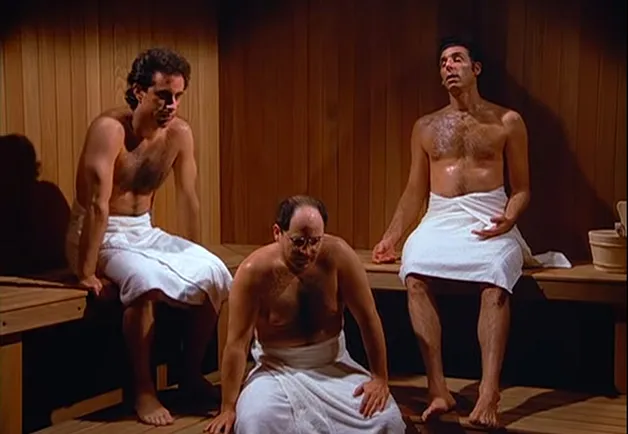In today’s fast-paced, often chaotic world, the quest for a man’s inner peace is more crucial than ever. Many of us strive for harmony and happiness, yet often find ourselves caught in the throes of stress, emotional burnout, and a constant sense of imbalance. Relationships—whether romantic, familial, or friendships—are frequently the areas where we seek validation, meaning, and support, yet they can also be the source of our greatest emotional turmoil.
We often give everything to others in the hope of receiving love, appreciation, or approval, only to discover that such sacrifices rarely yield lasting satisfaction. True peace comes when we learn to balance our emotional investments and recognize the value of peace within ourselves. This article explores how to navigate relationships without losing your inner peace, and offers practical advice for cultivating lasting emotional growth.
1. The Myth of ‘Happily Ever After’ and the Emotional Costs of Self-Sacrifice

The story of Fadekemi in “How to Give a Man Your All and Still Not Find Inner Peace” is all too familiar to many people. Fadekemi found herself sacrificing her happiness in the name of love, constantly seeking validation and approval from her partner. She was caught in a loop of giving without receiving and was emotionally drained. This situation is a harsh reflection of how many relationships work—where one person feels as though they have to continuously pour from an empty cup.
The core of this emotional exhaustion stems from the ingrained belief that we must give all of ourselves to our partners to make the relationship work. This belief is often romanticized in movies, books, and fairy tales, where love is seen as the ultimate sacrifice. Yet, in reality, love should be about balance, mutual respect, and reciprocal care.
When we invest in relationships at the cost of our own well-being, we risk losing our identity and man’s inner peace. Fadekemi’s realization that her emotional sacrifices weren’t leading to happiness was a turning point—she came to understand that a fulfilling relationship requires both partners to maintain their own sense of self. Sacrificing your boundaries, needs, and man’s inner peace in the hope of keeping a relationship intact will only lead to frustration, resentment, and burnout.
Love in its healthiest form should empower both individuals, not deplete them. Fadekemi’s story serves as a cautionary tale: giving everything for someone else often leaves you with nothing left for yourself. And when you sacrifice your peace for the sake of a relationship, the relationship itself becomes a source of stress and dissatisfaction, rather than joy.
2. The Impact of Anger on Inner Peace
Anger is one of the most potent emotions we experience, but it can also be one of the most destructive. Holding onto anger—whether toward a partner, friend, family member, or even yourself—can cloud our judgment, damage relationships, and rob us of our peace. The story of Esther in “He Wanted to Die a Peaceful Man” highlights the deep emotional toll of harboring anger for extended periods. Esther’s partner, Harvey, spent many years of his life consumed by resentment, and it affected both his health and relationships. It wasn’t until later in life that he sought therapy to address the unresolved anger that had been silently eroding his happiness.
Anger can be a shield, a response to hurt, fear, or insecurity. We hold onto it because it feels empowering in the short term, a way to protect ourselves from further emotional harm. However, if left unchecked, anger festers and transforms into bitterness, resentment, and even physical ailments. The emotional and physical toll of unresolved anger cannot be underestimated—it drains our energy, clouds our thinking, and creates a distance between us and the people we care about.
The key to finding peace is learning to release anger. This doesn’t mean suppressing it or pretending it doesn’t exist—it means processing it in a healthy, constructive way. Harvey’s decision to confront his anger in his 70s was a significant step toward reclaiming his man’s inner peace. His willingness to confront his unresolved emotions allowed him to begin the healing process and cultivate more loving, peaceful relationships.
Anger may seem like a protective mechanism, but in reality, it’s a heavy burden. Letting go of anger doesn’t mean forgetting or excusing wrongdoing; rather, it means freeing yourself from the emotional grip that anger holds over you. It’s a decision to move forward and embrace a peaceful, balanced life.
3. Reclaiming Your Peace: Practical Steps for Emotional Growth

After understanding the emotional costs of self-sacrifice and the impact of anger, it’s time to take actionable steps toward reclaiming your peace. True emotional growth doesn’t happen overnight, but by consistently making small, mindful decisions, you can cultivate lasting peace. Below are several practical steps you can take to nurture your emotional well-being:
a) Set Boundaries
Setting boundaries is one of the most important steps in protecting your man’s inner peace. Boundaries are essential for maintaining a sense of self in relationships. Without boundaries, it’s easy to become overwhelmed by the needs and expectations of others. The first step in setting boundaries is recognizing where you feel overextended. Are there situations where you feel drained, unappreciated, or taken for granted? These are the areas where boundaries are most needed.
Start by communicating your needs clearly and respectfully. It may be uncomfortable at first, especially if you’ve been in relationships where your boundaries were not respected, but this is a necessary step for creating a balanced, healthy dynamic. Boundaries can be physical, emotional, or mental—each aspect is equally important for maintaining peace within yourself.
For example, if you find yourself overwhelmed by a partner’s emotional demands, it’s important to assertively express your need for space or time to recharge. Setting boundaries allows you to stay grounded in who you are, without losing yourself to others’ expectations.
b) Prioritize Self-Care
Self-care is more than just bubble baths and occasional indulgences. True self-care involves making your emotional, mental, and physical health a top priority every day. This includes eating nourishing foods, getting enough rest, engaging in activities that bring you joy, and taking time for yourself when needed.
In relationships, it’s easy to get caught up in caring for others, but self-care ensures that you have the energy and emotional capacity to show up for others in a meaningful way. Think of self-care as a non-negotiable aspect of your life. Whether it’s going for a walk, spending time in nature, or simply reading a book, making time for activities that recharge you is essential.
c) Let Go of Perfectionism in Relationships
Perfectionism can be one of the most significant barriers to peace in relationships. We often hold ourselves and others to unrealistic standards, believing that we must be perfect partners, friends, or family members. However, perfection is an illusion. When we let go of the need to control every aspect of a relationship or constantly strive for approval, we can embrace the beauty of imperfection.
No one is perfect, and expecting perfection in others only leads to frustration and disappointment. It’s essential to accept the flaws in yourself and your loved ones and approach relationships with a sense of empathy and understanding. Love isn’t about being perfect—it’s about being real and compassionate.
d) Forgive Yourself and Others
Forgiveness is a powerful tool for emotional healing. Holding onto resentment or guilt only weighs you down, preventing you from experiencing peace. Forgiving yourself for past mistakes and letting go of grudges against others can be one of the most liberating actions you take.
Forgiveness doesn’t mean excusing harmful behavior; it means freeing yourself from the emotional chains that hold you back. When you forgive, you release the emotional grip that the past has on your present and future. It’s an act of self-compassion, allowing you to move forward without carrying the burden of unresolved hurt.
e) Seek Professional Help
Sometimes, the emotional work required to heal or find peace is too much to handle on your own. Seeking therapy or counseling is not a sign of weakness but rather a courageous step toward emotional growth. A therapist can provide the tools, perspective, and support you need to confront deep-seated issues, process your emotions, and develop healthier coping mechanisms.
Whether it’s working through anger, past trauma, or relationship struggles, professional support can accelerate the healing process. Therapy provides a safe space to explore your emotions and gain valuable insights into your behavior and thought patterns.
f) Embrace Vulnerability
Vulnerability is often viewed as a weakness, but it is, in fact, a gateway to deeper connection and growth. Allowing yourself to be vulnerable—whether with your partner, friends, or even yourself—creates space for genuine emotional intimacy. When you embrace vulnerability, you open yourself up to healing, growth, and authentic connection with others.
Being vulnerable means allowing yourself to be seen for who you truly are, including your fears, insecurities, and imperfections. This is a powerful act of self-acceptance and self-love, which ultimately leads to greater peace in all areas of life.
4. Moving Forward with Inner Peace
The journey toward a man’s inner peace is ongoing. It is not a destination but a practice—a continual process of self-awareness, emotional growth, and resilience. By setting boundaries, prioritizing self-care, and letting go of the need to be perfect or control every outcome, you can cultivate lasting peace. It’s about creating space in your life for emotional growth and understanding.
Remember, peace comes from within. It is not something that can be found outside of yourself, but rather something you create through your choices, actions, and mindset. And while the journey may be challenging, it is always worth the effort.
Q1: How can I stop sacrificing my happiness for others in relationships?
Start by identifying your emotional needs and setting healthy boundaries. Learn to prioritize your well-being and communicate openly with your partner about your needs and expectations. Relationships should be a partnership where both individuals feel respected and supported.
Q2: Why is anger so harmful to my inner peace?
Anger is an intense emotion that, when left unaddressed, can create emotional and physical strain. It can cloud judgment, damage relationships, and lead to feelings of bitterness. Releasing anger through healthy outlets, such as therapy, meditation, or journaling, can help restore peace.
Q3: How can I forgive someone who hurt me deeply?
Forgiveness doesn’t mean excusing the behavior—it means freeing yourself from the emotional burden. Understand that forgiveness is an act of self-compassion. It may take time, but forgiving allows you to move forward and release the hold that past hurt has on your peace.
Q4: What are some practical steps to create inner peace in my daily life?
Practice mindfulness, set boundaries, prioritize self-care, and embrace imperfection. Focus on being present in each moment, let go of perfectionism, and make time for activities that bring you joy. Consistently practice self-compassion and forgiveness.



